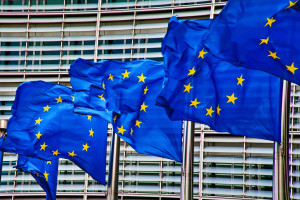Brussels aims to end exemptions on import duties

The European Commission is planning to impose import duties on goods up to 150 euros, which are currently exempted. Brussels has previously abolished VAT exemptions. These measures strengthen the position of traders within the Union.
The proposed amendment to the import rules is evident from documents reviewed by Süddeutsche Zeitung. The newspaper was headlined:
“The EU Commission is planning tariffs for all imports from third countries.”
Anyone importing a product from outside the European Union, for example, through a purchase from an American or Chinese online seller, is required to pay import duties. However, orders up to 150 euros have been exempted from this obligation so far. In practice, many orders from international online shops enter the Union without import duties. Brussels intends to change this situation. Plans for this change are highly concrete, according to German media, and could be officially announced at any moment.
Abolishment of VAT exemption
This is not the first time Brussels is setting new boundaries against cheap products from outside the Union. Or, more precisely, it is abolishing exemptions. For example, two years ago, the VAT exemption for products up to 22 euros was abolished, a measure that particularly affected Chinese online shops. AliExpress, the business-to-consumer subsidiary of Alibaba Group, attributed declining sales to this measure.
On July 1, 2021, the VAT exemption up to 22 euros was abolished.
The removal of the exemption on import duties adversely affects all online providers from outside the European Union, at least for the sale of products up to 150 euros. Online sellers within the Union benefit from the alleged policy change.
New EU Customs Authority
According to the European Commission, the customs reform would generate 750 million euros per year in import duties for the Union. The Commission has also made plans for a new EU Customs Authority, which should be up and running within five years. This authority is expected to establish and maintain a new ‘data hub’ to improve information flows between member states and simplify customs procedures.

Comments